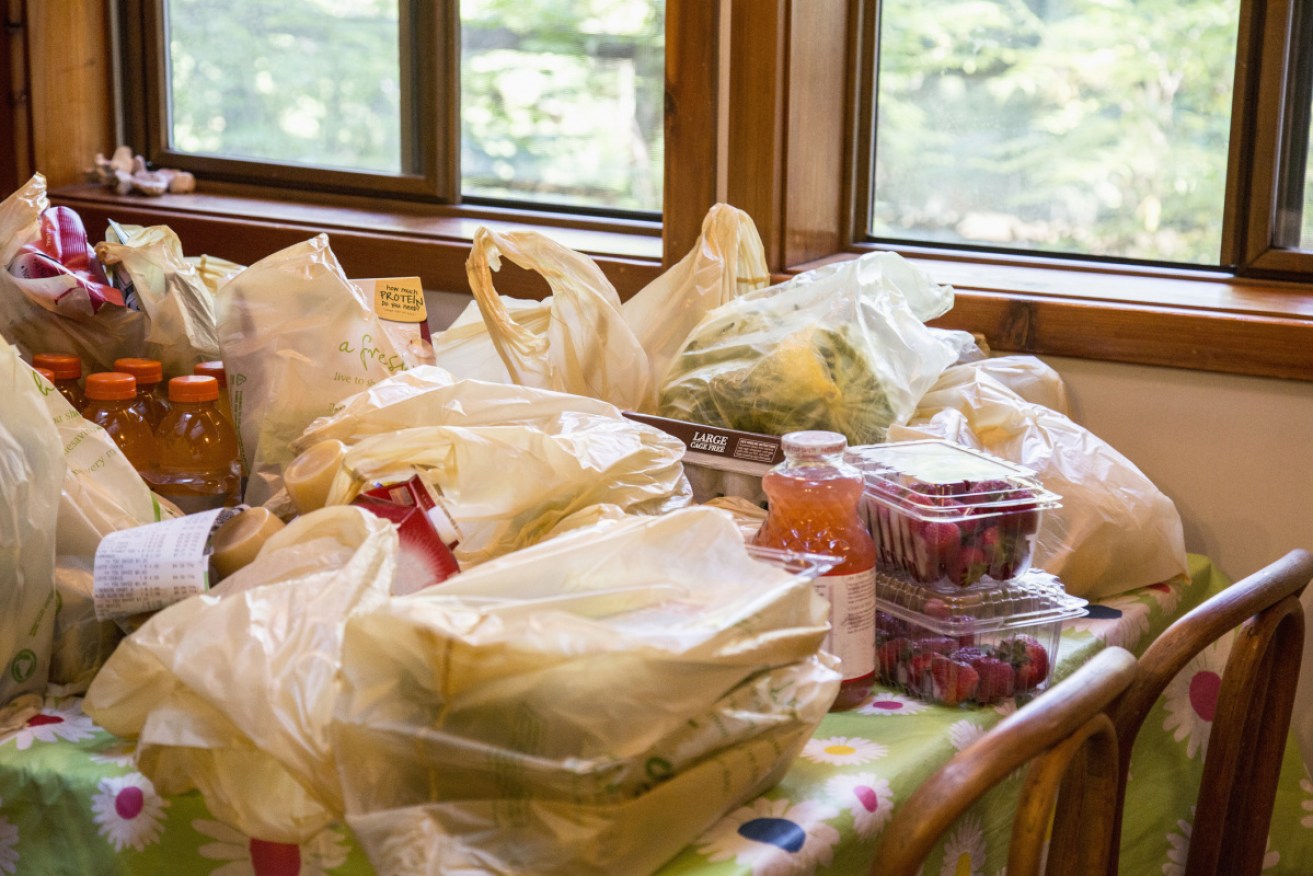Plastic bag bans aren’t to blame for Australia’s slowing economy. Here’s why


Photo: Getty
The environmental scourge of single-use plastic is an ongoing issue in Australia, but researchers have rubbished claims that plastic bag bans are to blame for the nation’s slowing economy.
On Monday, excerpts of documents obtained under freedom-of-information laws and published by The Australian revealed that the federal Treasury had been told by businesses that plastic bag bans were weighing down Australia’s economy.
Businesses complained that bans were preventing bagless shoppers from buying large amounts of groceries as they would be unable to carry them to their car or home, thus acting as a “brake” on the nation’s economy, to which the retail sector contributes more than $300 billion annually, The Australian reported.
“Several firms suggested that the introduction of a ban on plastic bags meant customers reduced their consumption to an amount that they could instead carry, and delayed purchases of heavier groceries,” said a report sent from Treasury economist Angelia Grant to Treasurer Josh Frydenberg in April.
Lightweight plastic bags have been banned in all states and territories except for Victoria, where a ban will come into effect in November, and New South Wales.
Last year, Australia’s two biggest supermarkets, Coles and Woolworths, chose to replace their free, single-use bags with 15 cent reusable bags, with a growing number of smaller retailers following suit.
Plastic bag bans have been implemented across the US, UK, parts of Ireland, and the EU for “many years” and there is “no correlation to the banning of single-use plastic bags and a decline in retail sales”, Queensland University of Technology retail researcher Gary Mortimer said.
Dr Mortimer slammed the suggestion that plastic bags were to blame for any decline in retail sales as illogical.
“I think we need to look at that particular submission [to Treasury] and discount it,” he said.
“We’re talking about a single-use plastic bag that’s been replaced by a 15 cent reusable bag. So it’s not a massive cost if you’re going to spend $100 on groceries, you can buy six reusable bags for 90 cents.”
Dr Mortimer also dismissed reports of the retail sector’s demise as “a little alarmist”, and said that while some sectors such as traditional department stores are struggling, other parts are doing “reasonably well”.
Businesses experiencing a downward trend in sales are more likely subject to “external factors like the growth of competition in the market place, a growing conscious consumer, the entrance of global fast-fashion retails, and also the increasing cost of living,” he said.
“There’s less and less disposable income we can spend in stores, and I don’t think it has anything to do with plastic bags.”
EY chief economist Jo Masters said that while it’s true that consumers are cutting down on “impulse buys” – or discretionary spending – plastic bags are unlikely to be the culprit.
“We know that households are facing a whole heap of headwinds – low wage growth, high debt, low savings, falling house prices – and a higher proportion of the budget is being taken up by essential spending,” Ms Masters said.
“My guess is that people aren’t buying impulse buys because they are cutting their spending and trying to save money, rather than [reduced spending being] directly related to the plastic bags.”
Australian Retailers’ Association executive director Russell Zimmerman said that while conditions are “pretty tough” for some retailers, plastic bag bans are not to blame.
“It’s fair to say the retail industry has been in difficulty for quite some time … to blame plastic bags for this might stretch it a bit,” Mr Zimmerman said.
Shoppers will ultimately adapt to the need to bring their own reusable bag, Curtin University consumer behaviour researcher Billy Sung said.
“Habit formation is a long-term process and the habit of using a reusable bag, or paying 15 cents for a plastic bag, is still forming,” Dr Sung said.
“During the process, the plastic bag ban may be perceived as negative, but ultimately this behaviour will simply become a habit accepted by the consumer and will be seen a norm, as we see in other countries that have implemented similar policy.”








